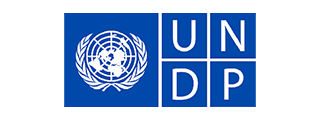
Author: Lena Schmid, Hudara
What do we mean by well-being and mental health?
A mentally healthy person is feeling good, realizes her/his potential, copes with the normal stresses of life, is able to work productively and to make a contribution to the community1. Mental health is not understood as the mere absence of disease but a positive thriving mental state. Emotions and feelings (personal aspects), social connections and activities (interpersonal aspects) and adaptive thinking, learning and developing (skills, knowledge)2 are important for a person’s psychosocial well-being.
Why making well-being and mental health one of Hudara’s priorities?
Difficult contextual situations of conflict, poverty and climate change create wide range of problems at individual, familial, community and societal levels. The destruction of protective support and the increase of risks lead to distress, grief, depressive, anxious and trauma-related features3. Large parts of the population experience a wide range of symptoms of distress, while around 20% develop mild to moderate psychological problems. We speak of a mental or neurological disorder if a problem reaches a considerable extent and shows specific criteria. This is seen in around 2-3% of people in emergency and complicated developmental settings4.
Mental and neurological disorders and problems are a primary cause of suffering worldwide. One in four people experience this at some point in life5. Additionally, it rarely occurs in isolation and it increases risk for other diseases and problems6. People in such a situation are often stigmatized, rejected and isolated from their community. Despite the need for treatment, there are scarce resources in many forms: limited policies, infrastructures, services, community supports, human resources and funding. Disadvantaged communities have the highest need, but the least resources. There are few psychiatrists, nurses and psychosocial care workers in the majority of those communities – sometimes there is just one psychiatrist for thousands or even millions of people7.
What does care for mental health and wellbeing at Hudara look like?
Mental health and psychosocial support (MHPSS) is “any type of local or outside support that aims to protect or promote psychosocial well-being and/or prevent or treat mental disorder”8. At Hudara we follow a holistic approach, emphasizing the strong links between social and psychological factors.
Interventions refer to the structure of the IASC four-tier pyramid model9. This includes professional treatment of mental and neurological disorders (specialised service layer), individual, family and group interventions to address mild to moderate mental problems (focused non-specialised support layer), psychosocial activities to foster well-being, resilience and community development (community and family support layer) and awareness raising and advocacy to enhance knowledge and understanding about distress and mental problems as well as services available (basic services and security layer).
It is a fundamental challenge to implement effective evidence-based treatments on the specialised service layer in disorganized settings and hostile environments where there are low or no local human resources to do so. We aim to carefully integrate techniques that have shown promise in recent efforts to be effective and appropriate (Narrative exposure therapy10, cognitive-behavioural and interpersonal therapy methods through a low-intensity approach11 12, systemic counselling13). Within our approach we use creative expressions and realizations of art, cultural works, natural resources and handicrafts as means towards an alternative experience of psychosocial matters and ways to reflect and work on problems. We take a strength-based perspective and emphasize on the resources of people and their ability to find solutions to their problems. Strong monitoring and evaluation efforts are connected to our activities, acting on the need for more evidence-based practice14 15.
References
1 Adapted from World Health Organizations webpage, retrieved on 26th of October 2018: http://www.who.int/features/factfiles/mental_health/en/
2 United Nations Children’s Fund (2011). Inter-agency guide to the evaluation of psychosocial programming in emergencies.
3 Global Platform on Disaster Risk Management for Health (2011). Mental Health and Psychosocial Support, Fact Sheets, WHO/United Kingdom Health Protection Agency and partners. http://www.who.int/hac/events/drm_ fact_sheet_mental_health.pdf
4 Inter-Agency Standing Committee (IASC, 2007). Guidelines on Mental Health and Psychosocial Support in Emergency Settings. Geneva: IASC.
5 World Health Organization webpage, retrieved on 26th of October 2018: https://www.who.int/whr/2001/media_centre/press_release/en/
6 Prince, M., Patel, V., Saxena, S., Maj, M., Maselko, J., Phillips, M. R. & Rahman, A. (2007). No health without mental health. Lancet, 370. p. 859-877.
7 Saraceno B, van Ommeren M, Batniji R, Cohen A, Gureje O, Mahoney J, et al., et al. Barriers to improvement of mental health services in low-income and middle-income countries. Lancet 2007; 370: 1164-74
8 Inter-Agency Standing Committee (2007). IASC Guidelines on Mental Health and Psychosocial Support in Emergency Settings. Geneva: IASC.
9 Inter-Agency Standing Committee (IASC, 2007). Guidelines on Mental Health and Psychosocial Support in Emergency Settings. Geneva: IASC.
10 Jabob, N., Neuner, F., Maedl, A., Schaal, S. & Elbert, T. (2014). Dissemination of Psychotherapy for Trauma Spectrum Disorders in Postconclict Settings: A Randomised Controlled Trial in Rwanda. Psychotherapy and Psychosomatics 83, 6.
11 World Health Organization. Problem Management Plus (PM+): Individual psychological help for adults impaired by distress in communities exposed to adversity. (Generic field-trial version 1.1). Geneva, WHO, 2018.
12 World Health Organization and Columbia University. Group Interpersonal Therapy (IPT) for Depression (WHO generic field-trial version 1.0). Geneva, WHO, 2016.
13 Charles, L. & Samarasinghe, G. (2016). Family Therapy in Global Humanitarian Contexts: Voices and Issues from the Field. New York: Springer.
14 Bangpan M, Felix L, Chiumento A, Dickson, K (2015). The impact of Mental Health and Psychosocial Support interventions on people affected by humanitarian emergencies: a systematic review protocol. Oxford: Oxfam GB.
15 Augustinavicius, J. L., Greene, M. C., Lakin, D. P. & Tol, W. A. (2018). Monitoring and evaluation of mental health and psychosocial support programs in humanitarian settings: a scoping review of terminology and focus. Conflict and Health, 12, 9.












